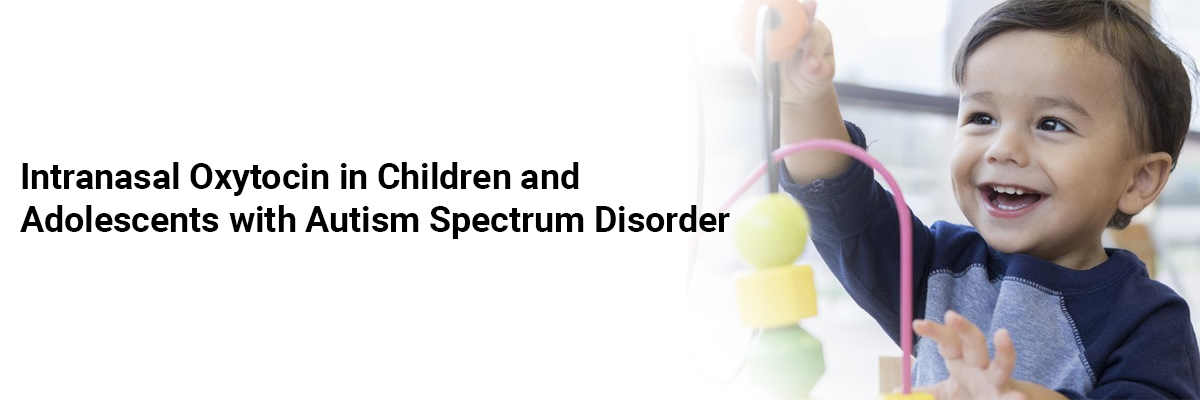
 IJCP Editorial Team
IJCP Editorial Team
Intranasal Oxytocin in Children and Adolescents with Autism Spectrum Disorder
Experimental studies and small clinical trials suggest the role of intranasal oxytocin in reducing social impairment in persons with an autism spectrum disorder. Oxytocin is used in clinical practice to treat many children with an autism spectrum disorder.
A 24-week trial investigated the role efficacy of intranasal oxytocin therapy in children and adolescents aged 3 to 17 years with an autism spectrum disorder. The Participants were stratified based on age and verbal fluency and were administered intranasally either oxytocin or placebo, 48 international units daily.
The change on the Aberrant Behavior Checklist modified the Social Withdrawal subscale (ABC-mSW), which includes 13 items (scores range from 0 to 39, with higher scores indicating less social interaction), two additional measures of social function and an abbreviated measure of IQ was assessed.
The observations were as follows-
- 355 participants underwent screening and 290 were enrolled. 146 participants were assigned to the oxytocin group while 144 to the placebo group.
- 139 and 138 participants, in the oxytocin and the placebo group respectively, completed both the baseline and at least one postbaseline ABC-mSW assessment and thus were eligible for the modified intention-to-treat analyses.
- The least-squares mean change from baseline in the ABC-mSW score was found to be −3.7 in the oxytocin group and −3.5 in the placebo group.
- Two additional measures of social function and an abbreviated measure of IQ, along with the incidence and severity of adverse events were similar between the trial groups.
Intranasal oxytocin therapy compared with placebo, in children and adolescents with autism spectrum disorder revealed no between-group differences in the least-squares mean change from baseline on measures of social or cognitive functioning over 24 weeks.
Source: Sikich L, Kolevzon A, King BH. et al. Intranasal Oxytocin in Children and Adolescents with Autism Spectrum Disorder. N Engl J Med 2021; 385:1462-1473. DOI: 10.1056/NEJMoa2103583

IJCP Editorial Team
Comprising seasoned professionals and experts from the medical field, the IJCP editorial team is dedicated to delivering timely and accurate content and thriving to provide attention-grabbing information for the readers. What sets them apart are their diverse expertise, spanning academia, research, and clinical practice, and their dedication to upholding the highest standards of quality and integrity. With a wealth of experience and a commitment to excellence, the IJCP editorial team strives to provide valuable perspectives, the latest trends, and in-depth analyses across various medical domains, all in a way that keeps you interested and engaged.




















Please login to comment on this article